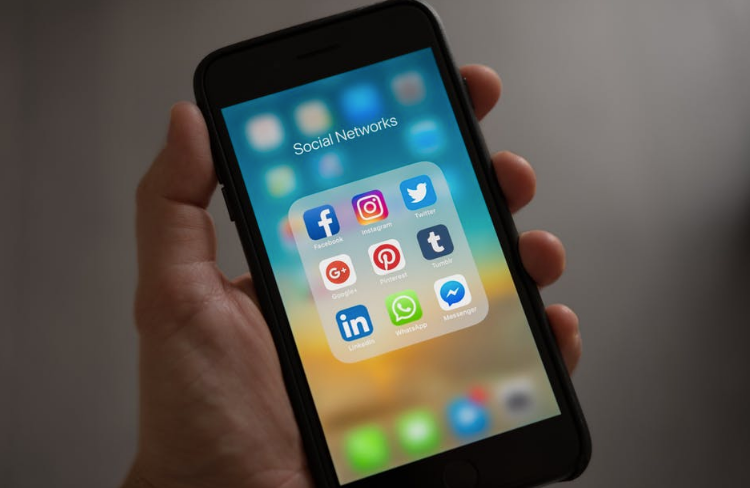Latest news about Bitcoin and all cryptocurrencies. Your daily crypto news habit.

Ah, the immutability of social networks. Those with a long memory will recall the networking joys of using the SixDegrees social network (as in Kevin Bacon), launched back in 1997. It allowed users to list friends and contacts, and invite them to join them in this new funky internet chatting area. At its peak SixDegrees boasted more than three million users.
This is nothing compared to Friends Reunited, which hit nearly 24 million users in 2010, or Friendster, which launched in 2002, underwent a gaming-focussed makeover in 2011, and hit a whopping 115 million users in the same year.
The historical daddy of social networks is of course MySpace. At its peak in 2008, MySpace also claimed 115 million monthly users. It is remember with enormous fondness for the crazy colour-funkiness of its pages, allowing any user to create all manner of migraine-inducing themes. It was hugely empowering and fun for people who just wanted to, um, express themselves. This was its great advantage, and ironically played a major part in its downfall. For in April of 2008, the younger, simpler, less eye-wincingly adaptable Facebook galloped right alongside MySpace, with an identical claim of 115 million users. From then on it never looked back, and of course we all know where we are now — 2.2 billion users by the end of 2017, which is like 63% of the entirety of the 3.5 billion users of the internet on the planet.
But where we are now is not where we were only a few weeks ago. Much has been made of the phenomenal rise of Facebook, of how it simplified and homogenised the whole act of what was then a nascent social networking experience; of how it struggled at first, and then mastered, the mobile experience, and of it’s smart and timely acquisitions that bolstered it further as it evolved. Early in it’s life it bought other, smaller, social networking platforms, such as FriendFeed. In 2010 it bought Friendster patents, and, oh look, in 2012 it acquired Instagram. In 2014 it secured WhatsApp and Oculus, and from then on a host of AI and audio/visual machine learning apps. This is intelligent, visionary purchasing, with an eye very much on the future. However its key to staying so relevant to both users and advertisers is in its use of data — billions of user preferences and comments and likes, feeding into algorithms that sort and feed and deliver in such a way that it can envelope you in a warm, fuzzy blanket of social connectedness.
This is perhaps why the revelations of recent days have been so damaging. It is no surprise that companies such as Cambridge Analytica seek to exploit user data and twist it for their own purposes. After recent bizarre election results in the US and otherwise, it perfectly fits that when this data is appropriated by other countries, troubling things can happen. In a world of social media new feeds and opinion polls and influencers, data is king. Yet Facebook’s reticence, and damning revelations that it, at best, looked the other way, is now making users and investors blink hard. $50 billion lost in the last two days — almost 10% of the entire value of the company. Zuckerberg called to account for the misuse of data by the UK Parliament. A whole raft of media outlets now explaining how to lock down the privacy settings, or even the likes of Brian Acton, founder of WhatsApp, declaring via Twitter that he is going to #deletefacebook. There is an irony in using one social media network to declare that he will delete another one; you would imagine that Twitter would be rubbings its hands. Yet Facebook is such a mega corp that the news is impact other tech stocks — they are all falling because investors seem spooked by (a) the misuse of the swathes of data that the likes of Google and Apple are holding, and (b) the anticipation of stricter regulation across the whole sector. GDPR officially starts in Europe on May 25th, bringing with it much tighter controls of data for any company that processes more than 250 data subjects, and putting power back into the hands of users. One can expect even more social-data-specific regulations, especially in the US, in the coming months. Today Zuckerberg acknowledged that a “breach of trust” between Facebook and its users had taken place, and announced plans to heavily audit and restrict the use of data on apps that plug into his platform. He did not explain why he waited nearly an entire week to respond to the public about the breach, nor whether any other miscreant companies misused data in a similar way.
The lesson here is that user data is, in fact, Big Data. The trivial facts of somebody’s life — the ones that they were previously quite happy to share with the big, free, social networks — are not quite so trivial any more. And people are starting to question whether they do actually want to share them at all. For that reason, Facebook should be very afraid.
- Facebook's value destruct-o-meter: $50 billion and counting
- Zuckerberg summoned to Commons inquiry
- The billionaire cofounder of WhatsApp, which Facebook acquired for $19 billion, just tweeted #deletefacebook
- GDPR is more important than ever: The Cambridge Analytica-Facebook meltdown
- Mark Zuckerberg Speaks Out on Cambridge Analytica Scandal
Facebook and data: much more than the new Myspace was originally published in Hacker Noon on Medium, where people are continuing the conversation by highlighting and responding to this story.
Disclaimer
The views and opinions expressed in this article are solely those of the authors and do not reflect the views of Bitcoin Insider. Every investment and trading move involves risk - this is especially true for cryptocurrencies given their volatility. We strongly advise our readers to conduct their own research when making a decision.